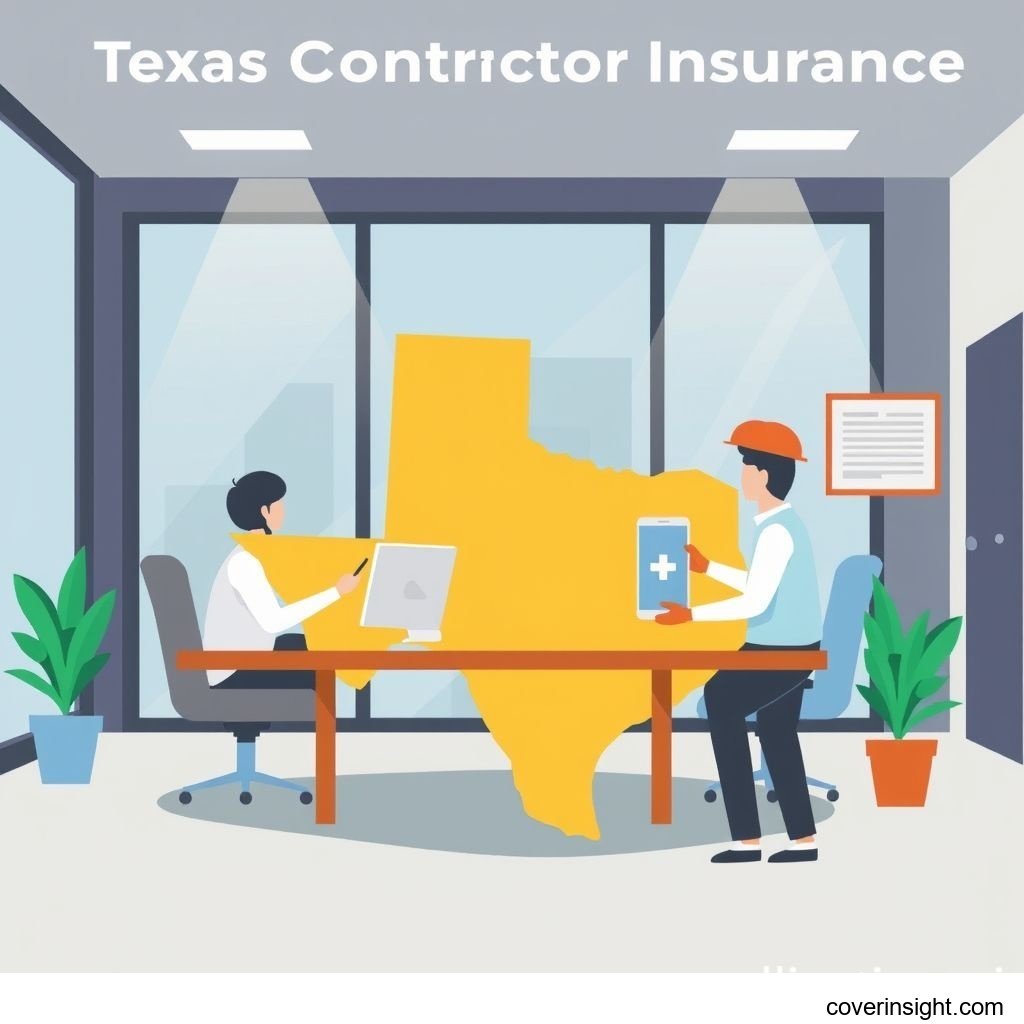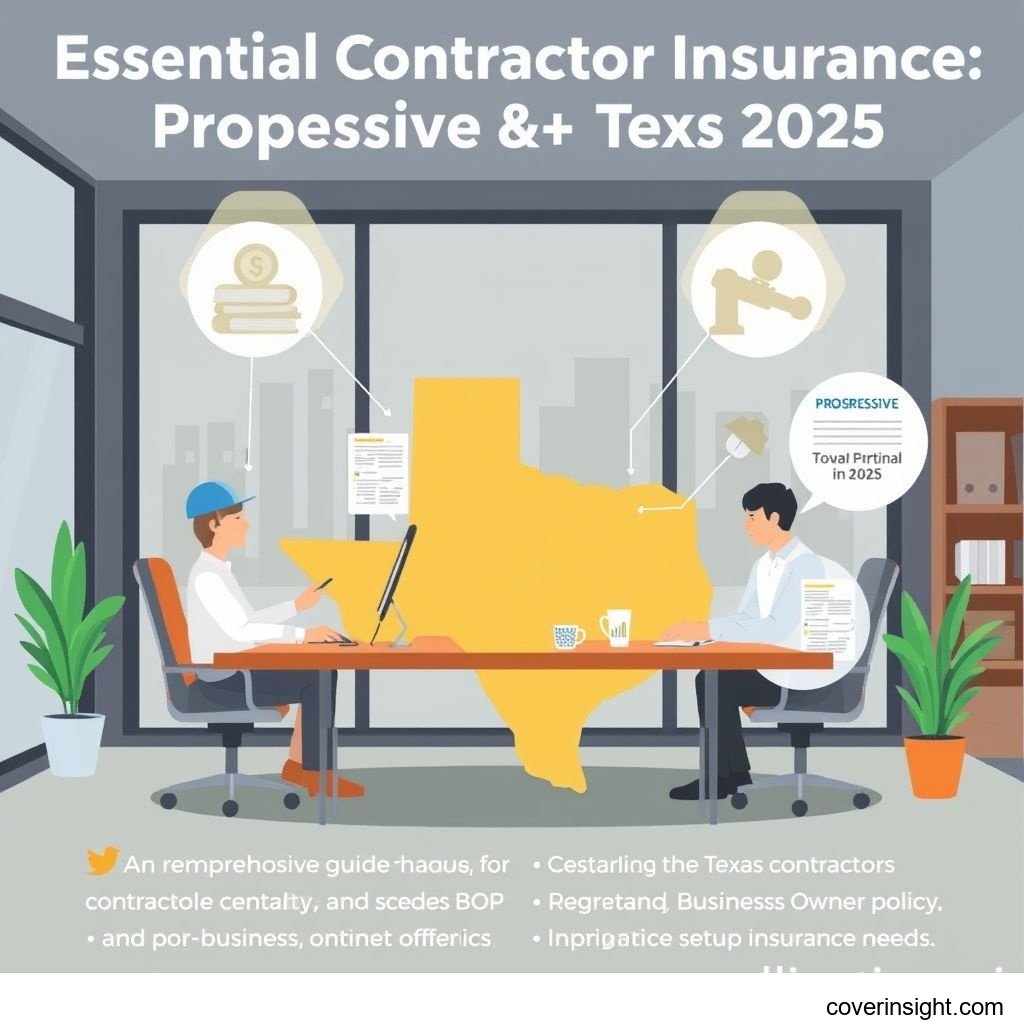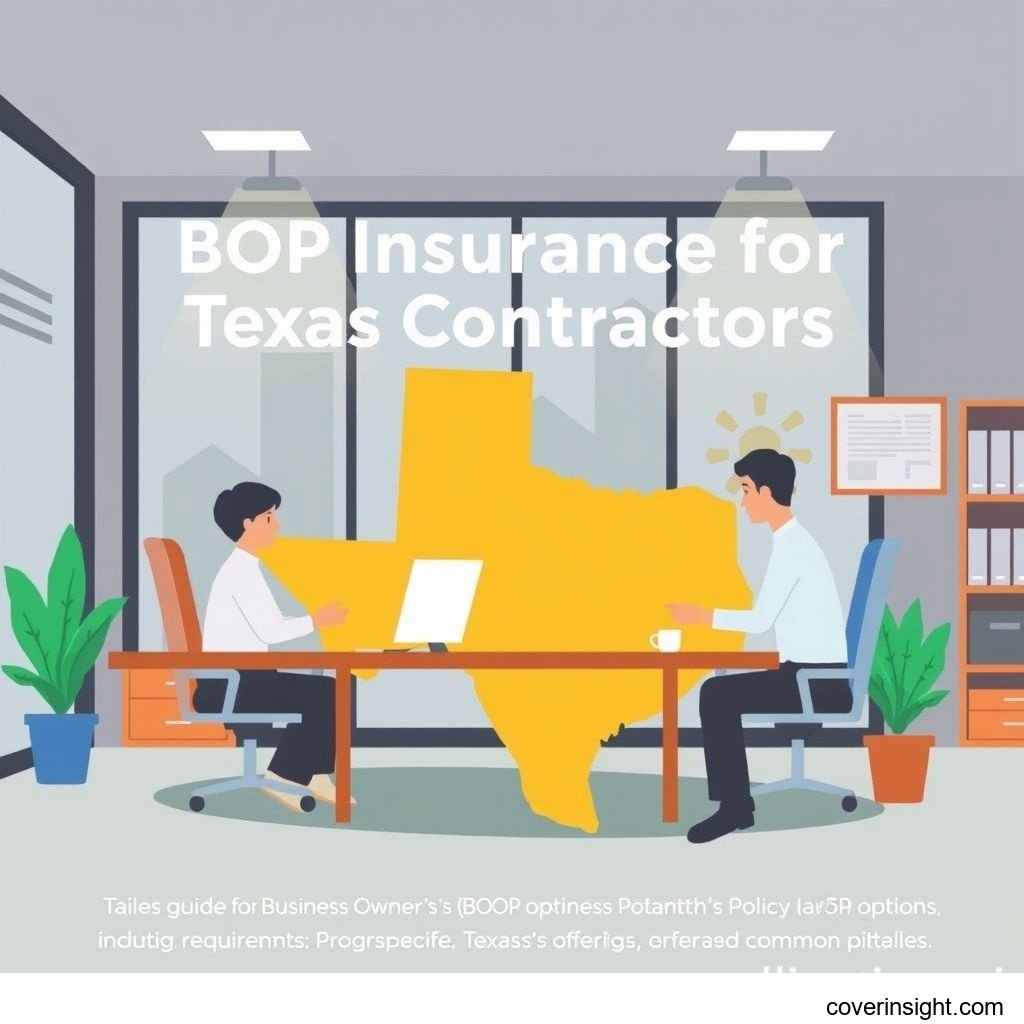Texas Contractor Insurance & Business Entity Search: 2025 Guide
Introduction
In the vibrant economic landscape of the United States, Texas stands out as a burgeoning hub for businesses of all sizes, especially within the construction and contracting sectors. As 2025 unfolds, the importance of robust legal and financial frameworks for these entities cannot be overstated. A critical step for any entrepreneur, particularly contractors, is understanding how to perform a texas business entity search to verify company legitimacy, ascertain ownership, and ensure compliance. This foundational process is not just a formality; it directly impacts eligibility for crucial coverages like a Business Owner's Policy (BOP) and other specialized contractor insurance, including offerings from major providers like Progressive. Securing the right insurance is paramount for protecting assets, clients, and employees in a high-stakes industry.
Understanding Texas Contractor Insurance Requirements
Operating as a contractor in Texas involves navigating a specific set of legal and professional obligations. Among the most critical are the contractor insurance requirements designed to protect all parties involved in a project. These requirements often stem from state regulations, client mandates, and industry best practices. Neglecting these can lead to significant financial penalties, legal liabilities, and even the cessation of business operations.
Essential Contractor Insurance Requirements
For most Texas contractors, a foundational insurance portfolio typically includes:
-
General Liability Insurance: This is often considered the cornerstone. It covers claims of bodily injury or property damage caused by your business operations, products, or services.
-
Workers' Compensation Insurance: Mandatory for most employers in Texas, though some specific exceptions exist. It covers medical expenses and lost wages for employees injured on the job.
-
Commercial Auto Insurance: Essential for any contractor using vehicles for business purposes, whether it's transporting tools, materials, or personnel. This policy protects against accidents involving company vehicles.
-
Professional Liability (Errors & Omissions) Insurance: Important for contractors offering design, consulting, or project management services. It covers claims of negligence, errors, or omissions in your professional advice or services.
-
Builder's Risk Insurance: For specific construction projects, this policy covers the structure and materials during the course of construction from perils like fire, theft, or vandalism.
Understanding these core contractor insurance requirements is the first step in building a resilient business, ensuring compliance, and safeguarding your financial future.
Tailored Progressive Solutions
Progressive is a prominent provider in the commercial insurance market, offering a range of policies tailored specifically for contractors. They are known for their flexible coverage options and competitive pricing, making them a popular choice for many Texas businesses. Progressive’s offerings often include:
-
Customizable BOPs that can combine general liability and property insurance.
-
Dedicated commercial auto insurance policies designed for fleets or individual work vehicles.
-
Workers’ compensation solutions to meet state mandates.
-
Specialized coverages like inland marine insurance for tools and equipment.
Their approach often focuses on ease of access and personalized service, helping contractors get the right coverage without unnecessary complexities.
Comprehensive Coverage: BOP, Progressive & Commercial Auto Insurance
A Business Owner's Policy (BOP) is a bundled insurance package that combines several essential coverages into one convenient policy. For small to medium-sized contractors in Texas, a BOP can be an incredibly cost-effective and comprehensive solution.
What’s Included in BOP
A typical BOP combines two key types of insurance:
-
Business Property Insurance: This covers damage to your business's physical assets, including:
-
Buildings (if owned)
-
Contents (equipment, tools, inventory, office furniture)
-
Loss of income due to covered property damage that forces temporary closure.
-
-
Business Liability Insurance (General Liability): This protects your business against claims of:
-
Bodily injury to third parties on your premises or due to your operations.
-
Property damage to third-party property caused by your business.
-
Personal and advertising injury (e.g., libel, slander).
-
The simplicity of a BOP makes it attractive, providing broad protection under a single premium. This streamlined approach allows contractors to focus on their work rather than managing multiple insurance policies. When considering providers, many contractors conduct a thorough texas business entity search on potential insurers to confirm their licensing and standing.
Common Exclusions to Know
While a BOP is comprehensive, it does not cover every potential risk. Common exclusions include:
-
Professional Liability: This requires a separate Errors & Omissions policy.
-
Workers' Compensation: Employees' on-the-job injuries are not covered by a BOP.
-
Commercial Auto Insurance: Vehicles used for business purposes require a dedicated policy.
-
Flood and Earthquake Damage: These perils are typically excluded and require separate, specialized policies.
-
Intentional Acts: Damage or injury caused intentionally by the business owner or employees.
Understanding these exclusions is vital to avoid coverage gaps and to ensure you secure all necessary protection for your contracting business. For contractors with vehicles, a robust commercial auto insurance policy is non-negotiable.
Regulatory Landscape & Texas Business Entity Search
Operating a legitimate contracting business in Texas requires strict adherence to state regulations. The process often begins with a texas business entity search, a vital tool for both compliance and due diligence. This search confirms a business's legal standing and registration within the state.
Importance of Texas Business Entity Search for Compliance
The Texas Secretary of State maintains a public database where you can perform a texas business entity search. This allows anyone to:
-
Verify the existence and legal name of a business entity.
-
Check its current status (active, dissolved, revoked).
-
Identify its registered agent, important for legal service and official communications.
-
Review filing history, including certificates of formation or amendments.
For contractors, conducting a texas business entity search is essential for:
-
Legal Standing: Ensuring your own business is properly registered and active.
-
Client Verification: Confirming the legitimacy of clients or general contractors you work with.
-
Subcontractor Due Diligence: Vetting potential subcontractors to ensure they are properly licensed and insured. This due diligence can prevent future legal or financial complications.
-
Contractual Agreements: Ensuring that the entity signing contracts is indeed the legally recognized party.
Regularly performing a texas business entity search demonstrates a commitment to transparency and legal compliance within the competitive construction sector. An image illustrating the Texas Secretary of State website might be placed here, with alt text: "Texas Business Entity Search Portal."
Navigating State Regulations
Beyond entity registration, Texas has various regulations governing contractor operations, licensing (for specific trades), and safety standards. These regulations significantly influence your contractor insurance requirements. For example, some specialized contractors (e.g., plumbers, electricians) must be licensed by specific state boards. Insurers often require proof of such licensing before issuing policies. Understanding these regulations is critical, as non-compliance can lead to:
-
Fines and penalties.
-
Loss of licenses.
-
Inability to bid on public projects.
-
Voiding of insurance policies.
Resources like the Texas Department of Licensing and Regulation (TDLR) provide comprehensive information. When forming or expanding a business, a precise texas business entity search helps clarify administrative requirements.
Cost Analysis & Texas Business Entity Search Impact
The cost of contractor insurance in Texas can vary widely, influenced by numerous factors unique to each business. Understanding these elements is crucial for effective budgeting and securing competitive premiums.
Price Factors for Contractors
Several key factors determine your insurance premiums:
-
Type of Contracting Work: Roofing contractors, for instance, generally face higher premiums than interior painters due to perceived risk levels.
-
Business Size and Revenue: Larger businesses with higher revenue often have more assets to protect and potentially more employees, leading to higher premiums.
-
Location: Urban areas in Texas may have different rates than rural areas due to varying crime rates, population density, and local building codes.
-
Claims History: A history of frequent or large claims will typically result in higher premiums. A clean claims record can lead to significant savings.
-
Safety Record and Training: Businesses with robust safety programs, employee training, and certifications often qualify for discounts.
-
Deductible and Coverage Limits: Opting for a higher deductible can lower your premium, but means you pay more out-of-pocket for a claim. Higher coverage limits, offering more protection, will increase premiums.
Providers like Progressive assess these factors to provide a tailored quote. Even conducting a texas business entity search on your own company can sometimes reveal discrepancies that, once corrected, might positively influence your risk profile with insurers.
Saving Tips & Business Verification
Reducing your insurance costs involves proactive management and strategic decisions:
-
Bundle Policies: Combining General Liability, Property, and Commercial Auto Insurance (like in a BOP) with a single provider often results in discounts.
-
Implement Safety Programs: A strong safety culture reduces the likelihood of claims, which insurers reward.
-
Increase Deductibles: If you have sufficient cash reserves, a higher deductible can lower your monthly premium.
-
Review Your Policy Annually: Business needs change. Review your coverage with your agent annually to ensure it still fits and to explore new discounts.
-
Maintain a Good Credit Score: For some types of business insurance, a strong business credit history can positively influence premiums.
-
Shop Around: Obtain quotes from multiple insurers. While Progressive is a strong contender, comparing options is always wise.
-
Accurate Business Description: Ensure your business activities are accurately described to your insurer. Misclassification can lead to incorrect premiums or even denied claims. The information from a texas business entity search can help verify accurate business classification.
By being diligent and informed, Texas contractors can significantly manage their insurance expenditures while maintaining adequate protection. An image showing a contractor reviewing policy documents might have alt text: "Contractor reviewing Texas business entity search results and insurance policies."
Choosing Your Policy & Leveraging Texas Business Entity Search
Selecting the ideal insurance policy is a strategic decision that goes beyond just comparing price tags. It requires a thorough understanding of your business operations, risk exposure, and the market.
Evaluating Your Needs
Before committing to a policy, ask yourself:
-
What specific risks does my contracting business face daily? (e.g., working at heights, operating heavy machinery, handling hazardous materials).
-
What are the contractual contractor insurance requirements from my clients or general contractors?
-
Do I have employees? If so, workers' compensation is critical.
-
Do I use vehicles for business purposes? If yes, then commercial auto insurance is essential.
-
What is my budget for insurance premiums?
-
How much risk am I willing to retain versus transfer to an insurer?
A detailed risk assessment will guide you toward the necessary coverages and appropriate limits. It is also wise to consult with an experienced insurance broker who specializes in contractor insurance in Texas.
The Role of Texas Business Entity Search in Due Diligence
When vetting potential insurance providers or even partners, the texas business entity search becomes an invaluable tool for due diligence. For instance:
-
Verifying Insurers: You can use the search to confirm the legal standing of an insurance company or agency operating in Texas. This ensures you are dealing with a legitimate, registered entity.
-
Partner Verification: If you are entering a joint venture or partnering with another contracting firm, performing a texas business entity search on their company provides critical transparency regarding their corporate structure and good standing.
-
Fraud Prevention: A business entity search can help identify fraudulent or non-existent businesses attempting to offer services or products. This protects your business from scams and ensures legitimate transactions.
Integrating the texas business entity search into your business processes enhances security and ensures all your partnerships, including with your insurance provider, are on solid ground. This systematic approach contributes to the long-term stability of your contracting operations in Texas.
FAQs on Texas Business Entity Search & Contractor Insurance
Navigating the complexities of contractor insurance and state regulations can raise many questions. Here, we address some of the most common inquiries, especially concerning the texas business entity search.
-
How much does texas business entity search cost?
Performing a basic texas business entity search on the Texas Secretary of State's website is typically free of charge. You can access public records and search for entities by name or file number without incurring fees. However, requesting certified copies of filed documents may involve a nominal fee.
-
What affects premiums?
As detailed earlier, numerous factors influence contractor insurance premiums. These include the type of work performed, the size of the business, its claims history, location, the number of employees, and the specific coverage limits and deductibles chosen. Maintaining a good safety record and a solid business credit history can also positively impact rates.
-
Is it mandatory?
While general liability insurance is not universally mandatory for all contractors in Texas, it is almost always required by clients, general contractors, and project owners. Workers' compensation is mandatory for most employers, with few exceptions. Commercial auto insurance is required if you operate vehicles for business purposes and are subject to state minimum liability requirements. Professional liability and builder's risk are often project-specific requirements.
-
How to choose?
Choosing the right contractor insurance involves a careful assessment of your specific business risks, contractual obligations, and budget. It is highly recommended to consult with an independent insurance agent specializing in commercial and contractor policies. They can help you identify coverage gaps, compare quotes from multiple carriers (including Progressive), and tailor a package that meets your unique needs. Always verify an agent's or insurer's credentials via a texas business entity search or through the Texas Department of Insurance.
-
Consequences of no coverage?
Operating without adequate insurance can have severe consequences. These include:
-
Financial Ruin: A single lawsuit for bodily injury or property damage can lead to massive out-of-pocket expenses, potentially bankrupting your business.
-
Loss of Contracts: Most clients and general contractors will refuse to work with uninsured contractors.
-
Legal Penalties: Non-compliance with mandatory insurance (like workers' compensation or commercial auto insurance) can result in significant fines and legal action from state authorities.
-
Damage to Reputation: An uninsured incident can severely harm your business's reputation and lead to a loss of trust from clients and the public.
-
Loss of Licenses: For licensed trades, lack of required insurance can lead to license suspension or revocation.
-
It's clear that proper insurance, underpinned by thorough due diligence like a texas business entity search, forms the bedrock of a secure and compliant contracting business in Texas.
Conclusion
Securing comprehensive Texas Contractor Insurance, including essential policies like a Business Owner's Policy (BOP) and robust commercial auto insurance, is not merely a legal obligation but a strategic necessity for any contractor operating in the Lone Star State. As we look towards 2025, the dynamic business environment demands vigilance in compliance and risk management. Leveraging tools like the texas business entity search for due diligence—whether verifying your own standing, vetting partners, or confirming an insurer's legitimacy—is a cornerstone of professional practice. Providers like Progressive offer tailored solutions to meet these diverse contractor insurance requirements. By understanding your risks, diligently comparing options, and staying abreast of regulatory changes, you can ensure your contracting business remains protected, compliant, and poised for sustained success in Texas.








Comments